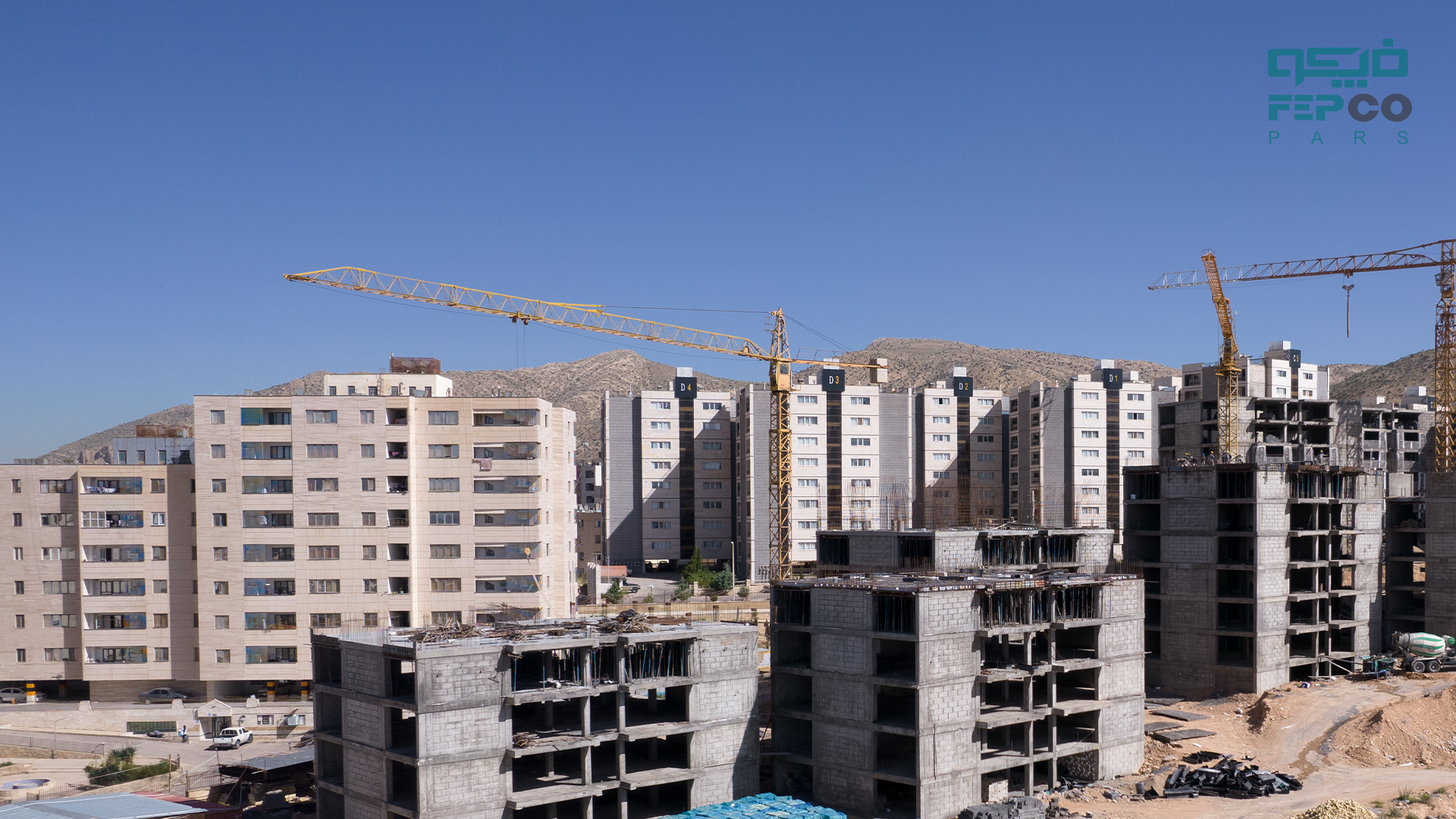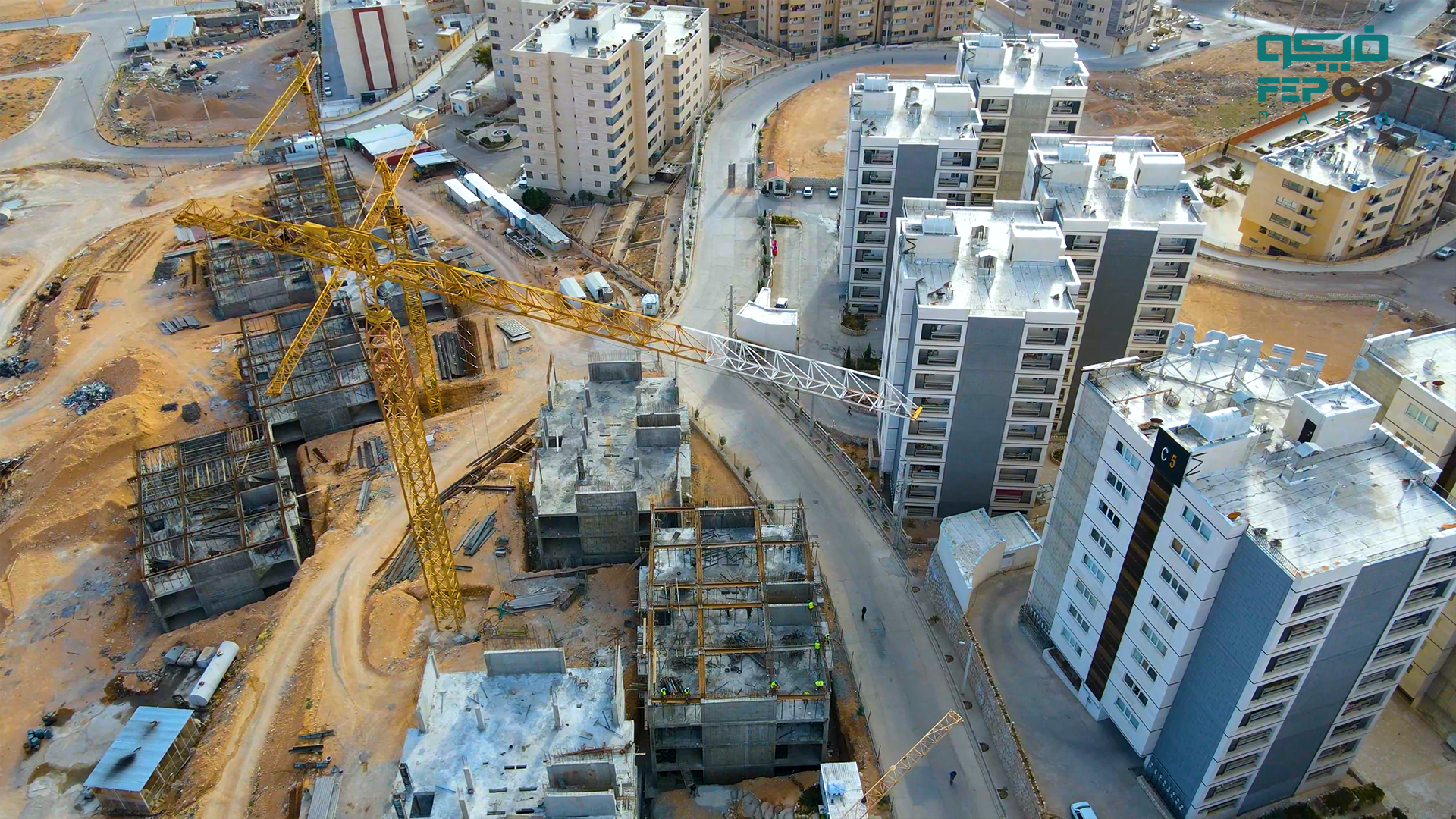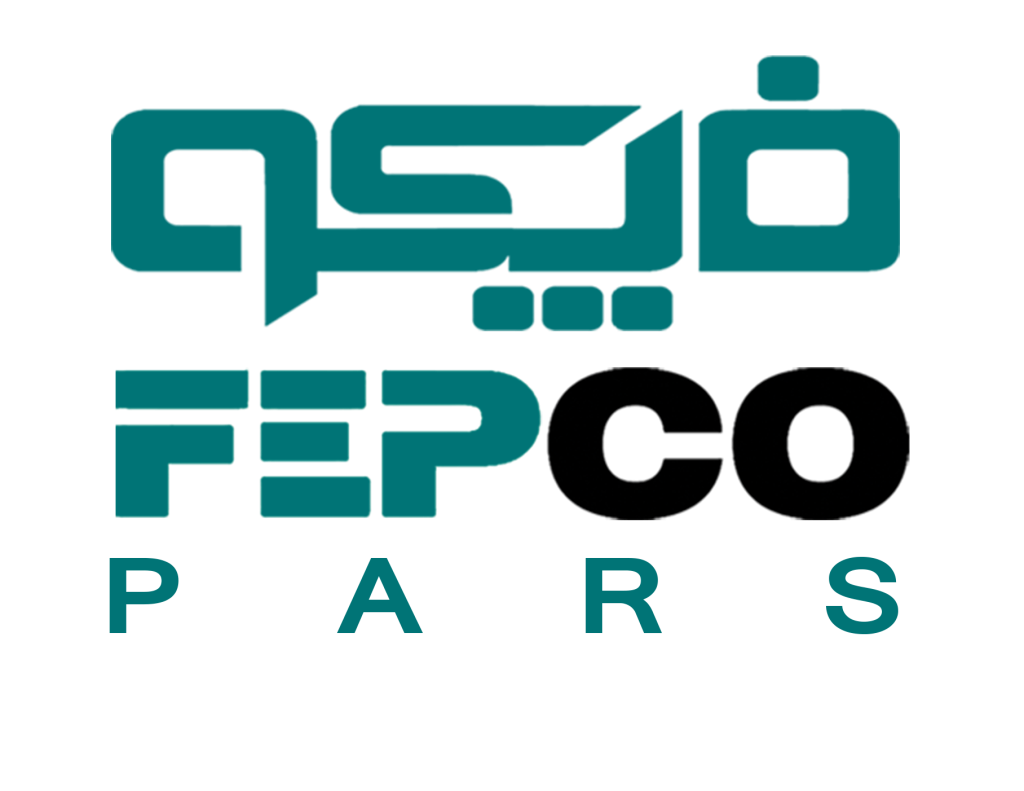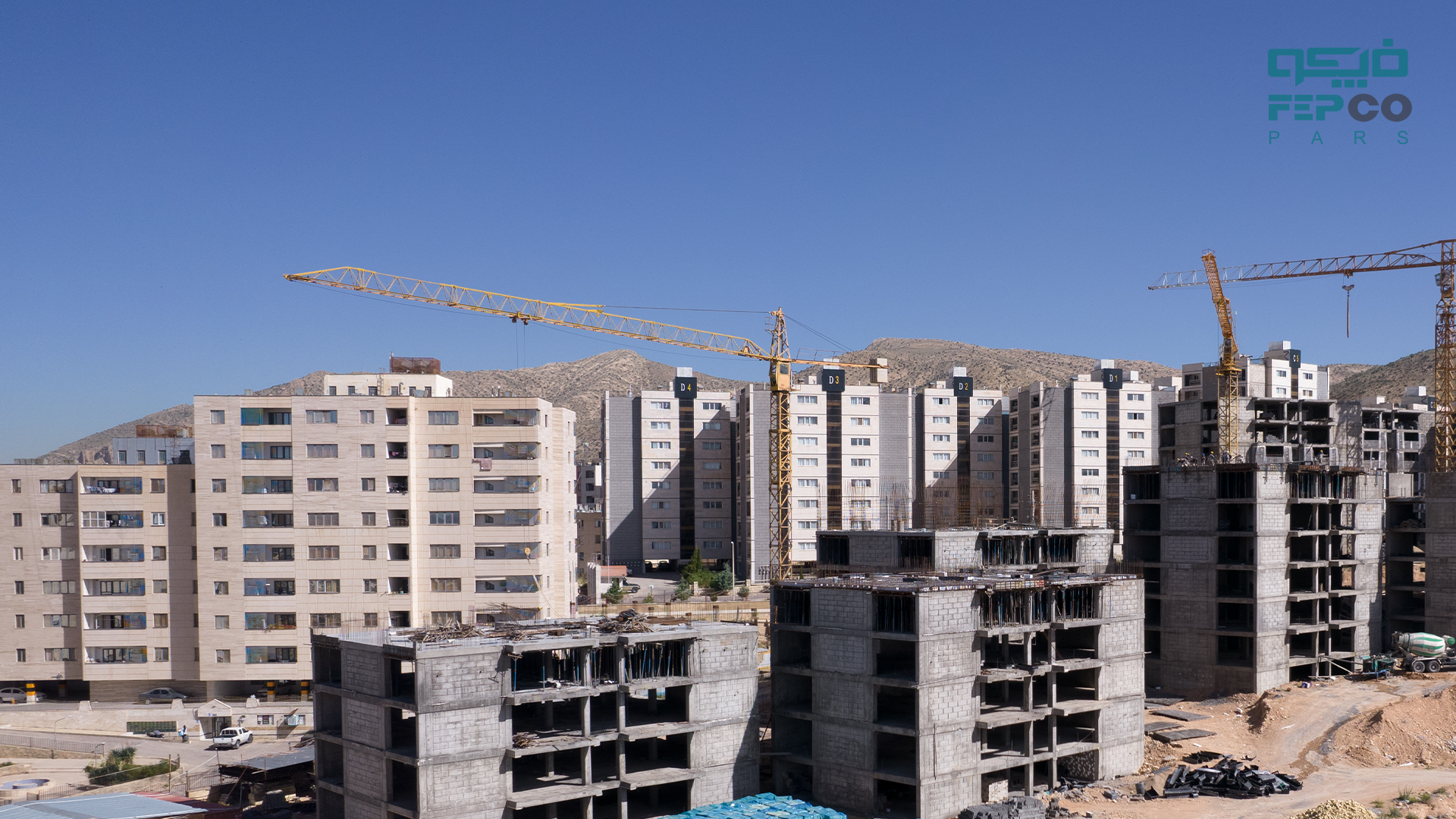In today’s world, with the ever-growing real estate market and increasing demand for buying and selling properties, the property ownership transfer has become one of the most critical steps in this process. Understanding the legal procedures for transferring ownership and addressing the challenges associated with it, especially in a country like Iran with its complex legal structures, is of particular importance for both buyers and sellers. This article, produced by the Research and Development Unit of “Fepco ( Saman Mechanic Farayand Energy Pars) ,” delves into the legal procedures of property ownership transfer in Iran and the potential challenges that may arise. The goal of this article is to provide a comprehensive guide to property ownership transfers, familiarizing readers with the laws surrounding property transfers, deed registration, and property transactions.

In addition to reviewing the main steps, this article addresses common issues in the property ownership transfer and the legal challenges that may be encountered during the process. It also offers solutions to prevent problems during the property ownership transfer. Furthermore, comprehensive information about the costs and procedures for transferring property deeds is provided, enabling readers to navigate this process with greater confidence.
The article also discusses key points in property ownership transfer and considers the latest property transfer laws. “Fepco,” as one of the pioneers in the mechanical and energy industries in Iran, we are committed to providing accurate and practical information to our audience, allowing them to enjoy a hassle-free and smooth property deed transfer.
We hope that this article can serve as a reliable and effective resource in the process of property ownership transfer, making the path easier for you.
Legal Procedures for Transferring Property Ownership in Iran
Property ownership transfer in Iran is a process that requires completing several legal steps and gathering various documents. Below is a detailed explanation of the legal procedures involved in this process and the required documentation:
1. Initial Agreement between Buyer and Seller
Explanation: In this stage, the buyer and seller agree on the price, terms of the transaction, and other details. This agreement may be verbal or written, typically in the form of a preliminary contract.
Required Documents: preliminary contract, if available.
2. Drafting the Sale Contract
Explanation: The sale contract is a document that records the final transaction and includes all the terms and obligations of both parties. This document is prepared either by a real estate agent or manually between the parties.
Required Documents: National ID cards and birth certificates of both parties, property ownership deed, utility bills, water, electricity, gas, and power of attorney, if applicable.
3. Necessary Inquiries
Explanation: Before the final transfer of the deed, it is necessary to conduct inquiries from various authorities to ensure that the property has no legal issues. These inquiries typically include checks for municipal debts, taxes, and the registration status of the property.
Required Documents: inquiry request form, national ID cards and birth certificates, property ownership deed.
4. Payment of taxes and fees
Explanation: Before the deed transfer, it is mandatory to pay the relevant taxes and fees associated with the transfer of ownership. These costs include the property transfer tax, notary office fees, and the real estate agent’s commission.
Required Documents: Tax payment receipts, payment slips to the relevant accounts.

5. Appearance at the Notary Office and Formal Deed Transfer
Explanation: The buyer and seller visit the notary office to complete the formal ownership transfer. At this stage, the property deed is transferred to the new owner’s name.
Required Documents: National ID cards and birth certificates of both parties, previous property ownership deed, sale contract, completion certificate if required, completed inquiries, payment receipts.
6. Registration of the Deed with the Organization for Registration of Deeds and Properties
Explanation: After the deed is drafted at the notary office, it is sent to the Organization for Registration of Deeds and Properties to officially record the ownership transfer in the registry. This step finalizes the ownership transfer.
Required Documents: Official deed drafted at the notary office, identification documents, payment receipt for registration fees.
Required Documents for Transferring Property Ownership
- Previous property ownership deed
- Sale contract or agreement
- National ID cards and birth certificates of the buyer and seller
- Required inquiries from the municipality, tax office, and registration office
- Completion certificate, if needed
- Utility bills: water, electricity, gas
- Power of attorney, if applicable
- Tax and fee payment receipts
- Official deed drafted at the notary office
- Identification documents for identity verification at the notary office
These steps and documents serve as a comprehensive guide for individuals intending to transfer property ownership in Iran. By following this guide, potential issues and obstacles can be avoided, ensuring that the transfer process is conducted legally and smoothly.
Common challenges in property ownership transfer

Property ownership transfer, particularly in Iran, can encounter various challenges and issues. These problems may arise due to legal, financial, or procedural reasons. Below are some common issues and suggestions on how to prevent them:
1. Legal and Registry Issues
Explanation: One of the most common problems in property ownership transfers is defects or discrepancies in the legal and registry status of the property. These issues may include mismatches between the property’s details and the deed, ongoing legal disputes, third-party claims on the property, or incorrect registration of the deed in official records.
Solution: Before purchasing and transferring ownership, conduct a thorough inquiry into the property’s registry status with the Real Estate Registration Office. It is also advisable to consult experienced legal advisors or attorneys to review the property’s legal status.
2. Outstanding debts and taxes
Explanation: Outstanding debts related to transfer taxes, municipal dues, or utility services such as water, electricity, and gas can create problems in the transfer process. If these debts are unpaid, the buyer may face legal and financial difficulties.
Solution: Before transferring the deed, ensure a complete inquiry into any outstanding debts on the property. The seller should provide documents confirming full payment of all debts.
3. Mismatch Between Physical Property and Deed Details
Explanation: Sometimes, the physical characteristics of the property, such as its size, location, or usage, do not match the details recorded in the deed. This can lead to serious legal issues.
Solution: Before signing the sale contract, conduct a physical inspection of the property and verify that its details match the deed. Hiring an official judicial expert for this purpose is recommended.
4. Fraud and Multiple Sales of the Same Property
Explanation: A major issue in Iran’s real estate market is fraud and the multiple sales of the same property to different buyers. This problem typically occurs with properties that do not have official deeds or have incomplete documentation.
Solution: Avoid purchasing properties that lack an official deed. Additionally, verify the seller’s ownership status through the Real Estate Registration Office and seek assistance from legal advisors or consultants.
5. Delays in the Deed Transfer Process
Explanation: The deed transfer process may be delayed due to bureaucratic procedures or incomplete documentation, causing problems for both the buyer and seller.
Solution: Ensure that all necessary documents for the deed transfer are prepared and complete before visiting the notary office. Continuous follow-up with the notary office and the registration office can help expedite the process.
6. Unawareness of Additional Costs
Explanation: Many buyers may not be aware of the additional costs associated with property ownership transfer, such as taxes, notary fees, inquiry fees, and other related expenses.
Solution: Before purchasing, make an accurate estimate of all additional costs and factor them into your decision-making. Consulting a financial or legal advisor can be helpful in this regard.
7. Ignorance of New Laws or Legal Changes
Explanation: Changes in laws and regulations related to property transactions may complicate the transfer process or lead to issues.
Solution: Stay informed about the latest legal changes and regulations regarding property ownership transfers. Regular study and consultation with lawyers or legal advisors can prevent problems arising from legal changes.
To avoid issues of property ownership transfer, the most important actions include conducting legal inquiries, thoroughly reviewing documents and deeds, using legal advisors, and paying attention to financial and legal details. By following these guidelines, you can ensure a safe and smooth transfer process.
Conclusion
Property ownership transfer is a complex and critical process in the real estate market that requires careful attention to the legal procedures and potential challenges involved. Given its importance, research and development in this area have been a primary focus of the Research and Development Unit at “Fepco (Saman Mechanic Farayand Energy Pars).”
This article thoroughly examines the legal steps required for transferring property ownership in Iran. These steps include drafting the sale contract, conducting necessary inquiries, paying legal fees, and finally transferring the deed at the notary office and registering it with the Organization for Registration of Deeds and Properties. Adhering to these steps helps buyers and sellers complete property transactions safely and legally.
Additionally, legal challenges in property ownership transfer were identified as one of the most significant common problems in this process. Common issues such as legal and registry discrepancies, outstanding debts, and fraud can delay or complicate the deed transfer process. Therefore, understanding property transfer laws and key points in ownership transfer is essential for both parties involved in the transaction.
This article also reviewed the costs and steps involved in deed transfer and offered solutions for better managing these expenses. Moreover, new property ownership transfer laws and their changes can significantly impact the process of purchasing a house and transferring the deed without hassle.
Overall, this article has been designed as a comprehensive guide to property ownership transfer and a valuable resource for those involved in property transactions. The Research and Development Unit at Fepco believes that by adhering to key points in property ownership transfer and utilizing strategies to prevent problems, many potential issues can be avoided, making the process more efficient and cost-effective.
This conclusion not only helps identify and analyze common problems in property ownership transfers but also provides practical and actionable solutions to ensure a safe and legal deed transfer. Fepco will continue its efforts in this field to improve legal and financial processes in ownership transfer, serving both customers and the broader community.
Frequently Asked Questions
1. What are the legal steps for property ownership transfer in Iran?
The legal steps include the initial agreement, drafting the sale contract, conducting necessary inquiries, paying taxes and fees, visiting the notary office for official deed transfer, and registering the deed with the Organization for Registration of Deeds and Properties. Each step requires specific documents that must be provided by the buyer and seller.
2. What documents are required for property ownership transfer?
Required documents include the property deed, sale contract, national ID cards and birth certificates of the buyer and seller, necessary inquiries from the municipality and tax office, completion certificate if needed, utility bills, and power of attorney if applicable.
3. What are the common challenges in property ownership transfer?
Common challenges include legal and registry discrepancies, outstanding debts and taxes, mismatches between property details and the deed, fraud and multiple sales of the same property, and delays in the deed transfer process. To prevent these issues, it is recommended to conduct thorough inquiries and seek legal advice.
4. How much does it cost for property ownership transfer?
Costs include transfer taxes, notary fees, inquiry fees, and utility-related expenses. These costs can vary depending on the property’s value and geographical location.
5. How can legal issues in property ownership transfers be avoided?
To avoid legal issues, necessary inquiries should be conducted with the real estate registration office, municipality, and tax office. Additionally, using the services of a legal advisor or specialized attorney can help identify and resolve potential issues.
6. What is the role of notary offices in property ownership transfers?
Notary offices are responsible for drafting and registering the official deed of ownership transfer. In these offices, the property deed is transferred to the new owner’s name, and all necessary documents and inquiries are reviewed and approved.
7. Have recent changes in laws affected property ownership transfers?
Yes, recent changes in laws can complicate the ownership transfer process or increase costs. Therefore, it is important to stay informed about the latest legal changes and regulations related to ownership transfer before taking any action.
8. Can property ownership transfers be completed without being present in Iran?
Yes, ownership transfers can be completed through legal representation. In this case, the seller or buyer can grant a valid power of attorney to a representative in Iran to handle the legal transfer process on their behalf.
9. How long does it take to complete property ownership transfer?
The time required depends on various factors, including the readiness of all documents, prompt response from inquiry authorities, and the efficiency of the notary office and registration organization. Typically, if no major issues arise, the process takes a few weeks to a month.
10. What should I do if a problem arises during the ownership transfer process?
If a problem arises, first contact your notary office or legal advisor to assess the issue. If the problem is serious, you may need to pursue legal action in court. Acting quickly and consulting with a specialized attorney



